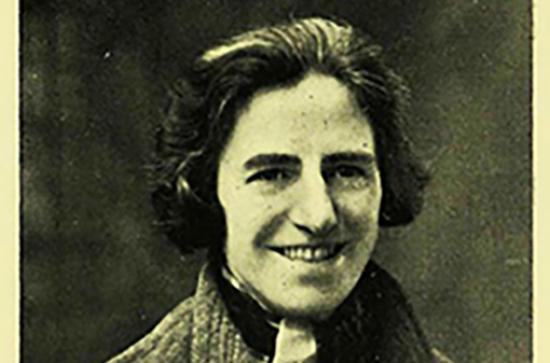
In the year marking the 40th anniversary of International Women’s Year, a United Nations designation to celebrate women globally, 3U, a collaboration between Maynooth University, DCU, and RCSI, has launched “Outsider Women,” its first digital humanities exhibition focusing on the lives of three important, yet largely overlooked, women in Irish history.
- Teresa Deevy - 1894-1963 - Irish dramatist, short story writer, and writer for radio.
- Emily Winifred Dickson - 1866-1944 - Doctor of Medicine and Master of Obstetrics, first woman fellow of the Royal College of Surgeons in Ireland .
- Agnes O'Farrelly (or Úna Ní Fhaircheallaigh) - 1874-1951 - Academic and Professor of Irish at University College Dublin (UCD), Irish language author and founding member of Cumann na mBan.
The exhibition can be accessed here.
In launching the exhibition, Professor Cathal Kelly CEO of RCSI, one of 3U’s partner institutions, said that “the online exhibition provides vital reflections on women’s contribution to Irish society in the past. Through the exhibition, the public will be introduced to the significant achievements of these women, ranging from awards gained by Dickson during her studies at the RCSI, to a digital copy of 'Grádh agus Crádh' (1901), the first Irish language novel by a female author (O’Farrelly), to the hugely successful plays by Deevy, most notably her popular production, Katie Roche. In each case, these women contributed richly to the lives of their community and paved the way for other women to achieve success in their chosen field.”
Emily Winifred Dickson, Agnes Winifred O’Farrelly and Teresa Deevy each lived in different times and social worlds but are connected by two major themes – their contribution to their societies and their status as outsiders, either in their contemporary world or in our subsequent historical recordings of it. Their lives ‘book end’ the great changes that took place in Ireland, especially for women in the late 1800’s and in the first half of the 20th Century.
Dr Jennifer Redmond, lecturer in the Department of History at Maynooth University, explains: “The theme of outsider women reflects the contemporary time these women were in, where they found it difficult to access institutions of power, jobs or a prominent role in cultural life or society. The theme also reflects how these women have become outsiders in terms of what we remember and what is recorded about these women – I believe they are important women to know and to learn about.”
Commenting on the launch, Dr Ruth Davis, Director for the 3U Partnership said that “the exhibition will enable those in Ireland and worldwide to appreciate the rich legacies of these three amazing Irish women for the Ireland of today. Recognising their talents, energies and achievements at this point is timely and appropriate.”
Outsider Women is a collaborative venture by the 3U Partnership Libraries of Maynooth University, the Royal College of Surgeons of Ireland, and St. Patrick’s College, Drumcondra, a constituent college of Dublin City University along with the Department of History at Maynooth University. Its key objectives are:
- the creation of an Irish online, open access, digital humanities research resource that supports professional training in archives management,
- to encourage collaboration between academic historians, librarians and archivists across the 3U Partner Institutions, and
- the development of a template to guide the presentation of thematic digital collections to the public which combine academic scholarship with curated online archival collections from the libraries of Maynooth University, the Royal College of Surgeons in Ireland (RCSI), and St Patrick’s College, Dublin City University (DCU).
Click here to view the exhibition.
About 3U Partnership
3U PARTNERSHIP is a new force in Irish higher education that combines the complementary strengths of DCU, Maynooth University and RCSI. Our vision is to form a deep and sustainable partnership, which will enable us to achieve much more together than we ever could alone. 3U PARTNERSHIP enhances our ability to deliver richer educational opportunities for our students and to solve some of the major research problems of our time.
